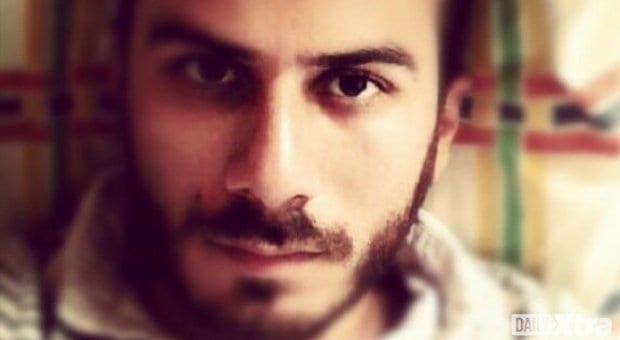“And (We sent) Lot when he said to his people: What! do you commit an indecency which anyone in the world has not done before you? Most surely you come to males in lust besides females; nay you are an extravagant people. So We delivered him and his followers, except his wife; she was of those who remained behind. And We rained upon them a rain; consider then what was the end of the guilty.”
— Al-Arraf, the Holy Book of Quran
This is but one of seven mentions of the sinful act of homosexuality in the holy book of Islam, the religion that is considered the most homophobic on the planet.
The general understanding of Islam seems to be that it’s a religion of terror. Even baby Stewie on Family Guy recently asked if Father Christmas was “killed by Muslims” after finding out that the season’s festivities had been cancelled.
Whenever something horrible happens, people of the Western civilization always seem to blame Islam first and think later.
What people seem to forget is that Islam is one of three religions born in the Middle East around the same time, the other two being Judaism and Christianity, which are not particularly favourable toward homosexuality either.
For example: in Leviticus, God doesn’t seem too pleased with gays. “Do not practise homosexuality, having sex with another man as with a woman. It is a detestable sin.”
Does that make Christianity a homophobic religion? Well, yes. But we forgive it, not because the original verses have changed but because many people’s understanding has evolved over the years, allowing for a more tolerant view of those whom the religion condemns.
Fundamentalist Christians may hate homosexuals, too, but extremist Muslims tend to feel more righteous and empowered to publicly condemn us, send us to trial or even kill us on sight.
Why haven’t more Muslims allowed their religion to evolve? For one thing, Islam is the youngest of the three religions, so it’s had a bit less time to mature.
However, all three religions, especially Islam, have been used as political tools.
Governments need to control masses, and what better way than to give them an idol to worship? (Of course, that would never happen in the West . . .)
The use of Islam as a means to control the masses is an extremely popular practice on this side of the world. The political conflict between Saudi Arabia and Iran is purely about oil and control of wealth, but both countries’ governments present the conflict to their people as a war between Sunni and Shiite Muslims, who are merely protecting their religion from the influence of the other side.
This conflict has manifested itself in the war in Syria, which is not about the pro-Shiite government and pro-Sunni rebels, but rather about control of the masses for political gain.
This extends to all aspects of the political game, really. The way Islam sees homosexuality is used as a distraction in many Islamic states. If you are a ruler of an Arab state and you are facing a political mess that you don’t want people to pay attention to, arrest homosexual men and make a big deal about it in the media. The public will be so engaged in that piece of scandal they won’t pay attention to your mess.
For example, during the time of the media parade around the famous Queen Boat arrest of 52 gay men in Egypt back in 2001, then-president Hosni Mubarak promoted his son Gamal Mubarak within the National Democratic Party in preparation for him to potentially become president. Did anyone notice that? Not really; they were busy discussing the clearly photoshopped pictures of the 52 gay men standing in front of an Israeli flag (because even homosexuality comes from the Israeli enemy, of course).
Another example is Syrian state TV interviewing the son of a famous Islamic scholar during the first year of the crisis there. The scholar, Adnan al-Arour, was known for supporting the Syrian revolution. His son was interviewed on pro-government state TV to disown his father, whom he claimed was gay and enjoyed “sleeping with younger men.”
Damascus, overnight, was overrun with anti-gay graffiti. Some claim the government ordered the slurs painted. Months later, when the son managed to escape to Jordan, he claimed that security forces forced him to falsely accuse his father.
In May 2013, people in Lebanon were busy watching the arrest of 34 homosexual men unfold on a popular TV program, forgetting that the country hadn’t had a government in a month and was instead being run by a caretaker government — which it still is.
Of course, Islam has its own failings regarding homosexuality. The Quran condemns it, considering it one of the most harmful sins; the prophet Mohammed claimed that whenever two men commit the act of sodomy, “the throne of Allah shakes.”
But like all religions, Islam can be used more as a political strategy than a spiritual guide. Dictatorships in the Arab world have been practising the use of Islam as a tool to control the mindset of the masses for ages.
As political tools, neither Islam nor Christianity deserves all the blame nor credit for the political systems to which they’re strategically tied by politicians.
Don’t blame Islam for being an ancient religion that doesn’t fit in our current societies. Blame the shadowy figures lurking in the dark, manipulating the masses through the use of Islam.


 Why you can trust Xtra
Why you can trust Xtra


